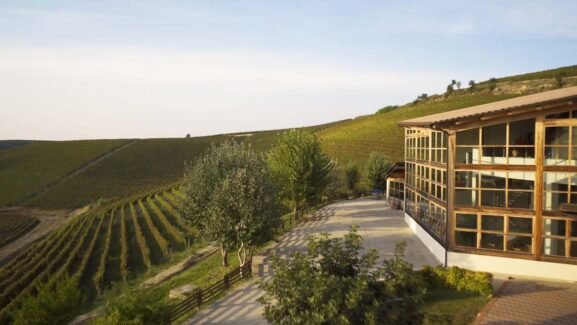Fonio Is Taking Over Beer
Drought tolerant and able to grow without inputs like fertilizer, pesticides and irrigation, fonio might be the most sustainable grain of which you’ve never heard.
A type of millet, the nutrient-dense, gluten-free cereal grain is a complete protein that thrives in the semi-arid climate and poor soil of the sub-Saharan Sahel region. For over 5,000 years, it has provided a crucial source of nutrients to the various ethnic groups of West Africa. Known as “the seed of the universe,” fonio is also part of the region’s brewing culture.
“Every single African society ties beer to their culture,” says Garrett Oliver, James Beard Award-winning brewmaster at Brooklyn Brewery, who himself is of West African descent. “Beer originated in Africa, although the Sumerians were the first to write about it in surviving texts.”
Now, 21st century brewers are beginning to explore the potential of using fonio in modern day beers.
To help increase its cultivation and distribution and create greater economic stability for fonio farmers, Oliver’s Brewing for Impact has tasked international breweries—including Sweden’s Omipollo, Guinness, Carlsberg in Denmark and Jing-A in China—to create a fonio-based beer. One will be released every month of 2024.
Fonio on the Rise
Oliver first learned about fonio in 2019, after watching a TED Talk on the grain by Senegalese chef Pierre Thiam, whose food company Yolélé works directly with West African farmers and women’s co-ops to export processed fonio.
The sustainability and social awareness attributes of the grain immensely impressed Oliver, one of the industry’s few Black brewers. He became fascinated with the idea of using fonio in commercial brewing.
Later that year, he released Brooklyn Brewery’s Teranga, a golden ale made from a one-to-one blend of fonio and barley malt. The beer was “really good and people liked it,” says Oliver. That ale was the start of a somewhat surprising collaboration between Oliver and Thiam that has grown substantially over the past five years.
“I knew that in order to have a sizable impact, I’d need to get large industries to start using [fonio],” says Thiam. “We’d started conversations with companies like Unilever and Kellogg’s, but the idea of reaching out to breweries never occurred to us until Garrett approached me.”

Oliver subsequently reached out to his friends in the industry to see if they’d want to join the initiative to promote the grain. Some of his longest collaborators agreed, such as Thornbridge Brewery in the United Kingdom, which released a fonio-driven cask beer in May, and Northern California’s Russian River Brewing, which is debuting a fonio-based Belgium blonde ale in August.
In April, Senegal’s Maison Kalao brewery released Brooklyn A Dakar, a 100%-fonio pilsner, making it the first commercial brewery in Africa to use the grain. This month, Carlsberg is releasing its own 100%-fonio beer, which Oliver describes as tasting like sake or white wine. In September, Brooklyn Brewery is on deck with a fonio-based double pilsner, Fonio Rising.
Though each one of these fonio brews vary widely in style, they share a “roundness to texture, with a tropical fruit-lychee-Sauvignon Blanc nose and bright, fruity characteristics,” says Oliver. “These are very light, accessible beers; a lot of alternate grains are earthy and heavy, but with fonio, I feel you can reach a wider audience.”
Oliver is hoping these collaborations highlight fonio’s adaptability and ability to make beer more sustainable. “The important thing is we’re not trying to bogart [fonio],” says Oliver. “I’d love Anheuser-Busch and Coors to get on this and facilitate actual change in the industry as a whole.”

Reaping Benefits and Weathering Hurdles
The benefits of using fonio for brewing are manifold. It can help reduce costs in other sectors, because using it allows brewers to decrease their hop load. It is also easy to work with.
“You just dump it directly into your mash tun,” says Vinnie Cilurzo of Russian River Brewing. “For our forthcoming release, we added 20% fonio to the mash and the fermentation was about the same as a standard brew. Fonio makes a good brewing grain because it has carbohydrates readily available, and a clean flavor that would fit well into many different styles.”
Despite its many attributes, fonio, which comes in black and white-colored varieties, has historically been overlooked in the commercial marketplace for a number of reasons.
Though it’s one of the fastest maturing grains at just 60 days from seed to harvest, without irrigation, it is limited to only one or two crops a year during the rainy season and is extremely labor intensive to process.
It also requires threshing to separate the edible portion from the chaff, a process traditionally performed by women who step on the grains, then pound them with a mortar and pestle before steaming them prior to cooking.
“It’s important to remove the skin for consumption, because it makes the grain digestible,” says Oliver. “It’s also important for brewing because it makes the enzymes accessible to the yeast.”
Modern machinery has never been applied to fonio harvest and milling. When European colonists arrived in the region, they brought Western crops (and the equipment used to process them) to replace native ones. “Colonial powers didn’t want colonized people to be self-sufficient,” says Oliver. “Globally, some people are poor because no one is paying a fair price for their goods or services. In the West, we don’t buy much from Africa, but about 700,00 tons of fonio are grown annually.”

Seeds of Change
“With mechanization and access to a worldwide grain distribution system, fonio can become a major crop and help bring food security and a good income to thousands of families,” says Oliver.
Yolélé has already been helping to bring some of this much-needed change to fonio growers in Mali, Togo and Guinea. The company works with farmers in the region to increase their yield and productivity by supplying them with high-quality seeds, agronomic improvements and equipment.
But mainstreaming fonio could help to increase access to clean water and other improvements, such as mechanized mills, which would significantly reduce post-harvest waste. Doing so could further reduce water usage and drive down costs to help make the sustainable grain more accessible and appealing to brewers and other industries.
Thiam adds that a boom in fonio, whether from commercial brewing or as a food, would bring economic opportunities to smallholder farming communities that have been plagued by out-migration due to a lack of jobs. “Increasing fonio production decreases risks of food insecurity since it will also make fonio more accessible to local populations and it will help stem migration,” he says.
With some of the nation’s most prominent breweries embracing fonio, it seems more likely now than ever before that fonio may blow up on the international stage—and foment the social and environmental change for which advocates like Thiam and Oliver have been rooting.
“I’ve been brewing professionally for 35 years,” says Olivero. “I can honestly say I’ve never seen any single industry trend or ingredient that excites people as much as fonio.”
More Sustainability Coverage

TOP-SELLER
Personalized Beer Stein
In Stock | $60.00
Published: July 9, 2024
Like what you’re reading? Learn more about:

